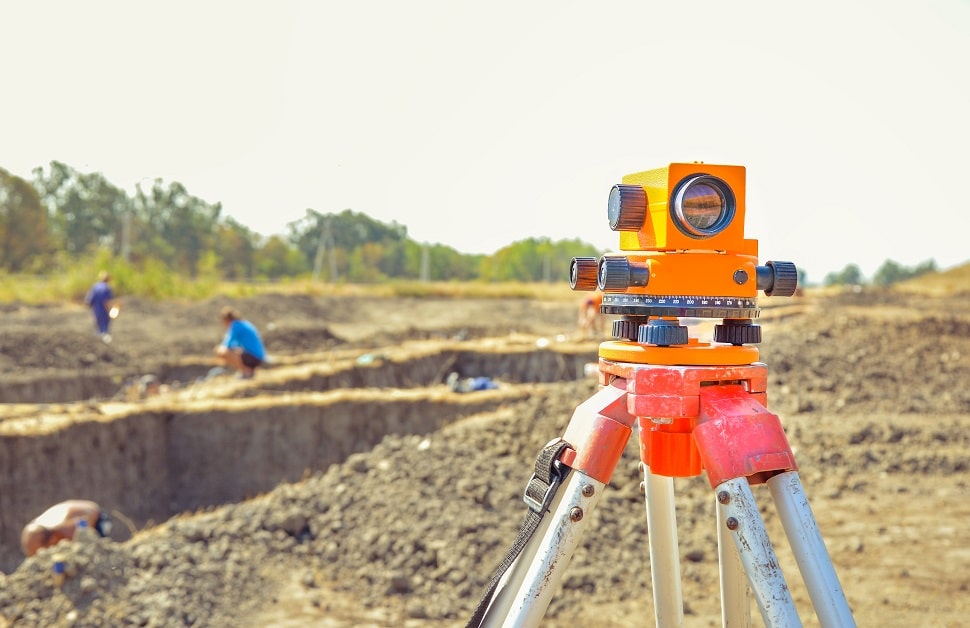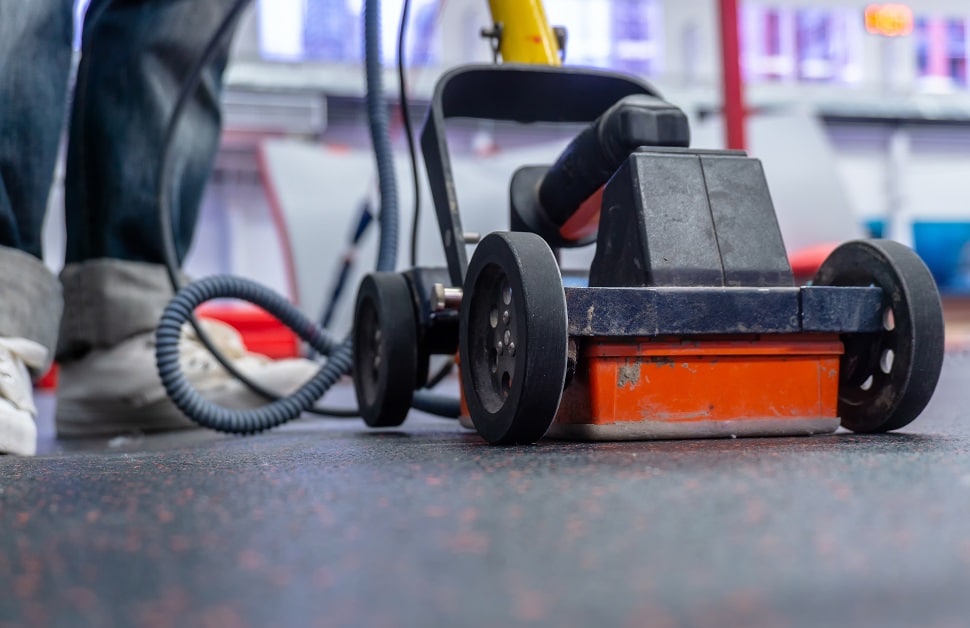Looking for Help Finding an Archaeological Consultancy?

During any development on land with unknown features beneath the surface or evidence of existing historic importance, it is crucial that an archaeological consultancy conducts an archaeological survey on the site.
That said, it is equally as important that the professional archaeological surveyors within the chosen archaeology and heritage consultancy are suitably licensed, qualified and capable of undertaking archaeological assessments on development sites and providing the necessary expert advice and insight to enhance project design and management, protect historic buildings and sites, and support planning applications made to the corresponding local planning authorities.
An Archaeology Consultancy with Distinction
Throughout our team, we boast an extensive knowledge of ecology and the relationship it has with planning and development. When it comes to archaeology, however, we outsource to a highly rated archaeological consultancy team with the strongest understanding of archaeology in the business. After communications with Arbtech, we can pass you on to the archaeology team we work with, who will be on hand to speak to you via phone, email or social media, and can simplify the jargon around archaeological processes in order to remove any unnecessary confusion.
Using an emphasis on covering all areas of the country, the team of archaeologists we work with are home-based and located across the UK. Not only will this mean that any and all clients can book an archaeological survey, but they can also save money by not having to pay extortionate costs for travel and other expenses. Whether you are based in England, Scotland, Northern Ireland, Wales, or even certain areas of mainland Europe upon request, we can help to refer you for archaeological assessments.
Check Out Our Reviews
Although it will come as no surprise to see that we believe our services and the services of partner companies we recommend are the best, you may need more convincing before you agree.
For examples of the extensive range of clients we have satisfied in the past and present, take a look at the feedback on our ‘Reviews’ page.
Typical Questions About Archaeological Consulting Services
In the section below, we have answered some of the questions you may have about the services we provide by giving a more detailed description of the archaeological consultancy we work with, their archaeological surveyors, and the archaeology surveys they carry out:
What is an Archaeological Consultancy?
An archaeological consultancy is a professional service dedicated to facilitating assessments and surveys involving archaeology, as well as certain heritage services and appraisals related to the historic environment. At any point where a development site is listed as holding archaeological value, significance or importance, or if the development site is undeveloped and has the potential to house historic materials, the developer in charge of the project would need to reach out to an archaeology and heritage consultancy for the necessary appraisals.
Through incorporating the expert advice and insight of an archaeological consultant, the land development can continue into future stages despite archaeological issues and the evidential or suspected presence of partly or completely buried archaeological remains. It is also stated within certain parts of the legislation – such as the Ancient Monuments and Archaeological Areas Act 1979, the National Heritage Act 1983 / the National Heritage Act 2002, the Town and Country Planning Act 1990, and the Treasure Act 1996 – that archaeological surveys are a pivotal component in the application for planning permission.
Providing the required archaeological assessments have been undertaken on the development site, and the corresponding report has been passed on to the planning department of the local council, there should be no reason to deny planning conditions. Without an archaeology report, the local planning authority would not hold sufficient information about archaeological, historic or heritage assets on the site, or the next steps from an archaeologist registered in England. As a result, local planning authorities would likely reject planning conditions until evidence of consideration of the historic environment and heritage assets has been submitted.
Archaeology Consultancy Services
Certain types of archaeological surveys, assessments, heritage statements and general heritage services and management plans will be needed based on the archaeological requirements of the local council and broader UK law. More often than not, archaeological services will consist of an archaeological surveyor conducting desk-based research to uncover any existing archaeological data about the site. The archaeologist would then physically attend the development site for a visual inspection of all areas, making a record of all heritage assets present.
The average archaeology survey is split into two primary approaches: the surface survey and the geophysical survey. As the name suggests, the surface survey focuses on any and all archaeological features identified at the surface level in any area of the site. It also gives an indication of potential archaeological issues and partly or completely buried archaeological remains below the surface of the ground, leading to the need for a geophysical survey if the preliminary desk-based study didn’t retrieve evidence of below-ground archaeological remains. Over the course of geophysical surveys, highly specialised equipment using ground penetrating radar (GPR) technology sends radio waves into the ground, determining the presence of underground objects by how far the waves reflect backwards towards the device.
Depending on the necessity and the specifications of the site and project – and the outcome of the desk-based research and the visual site inspection – an archaeology survey may also include techniques to gauge the effect buried archaeological remains have on the development that involves aerial photography, conjunction with the National Grid, contours, earthworks, existing building plans, site discovery and evaluation, and methods relating to contour or walkover surveys. Immediately after the assessment, an archaeology report will be created by the archaeological surveyor to detail the nature of the survey, findings from the site, and recommendations that will mitigate any overlap between the development and present historic assets, all compiled as a set of project management plans.
Choosing an Archaeological Consultancy
It is only natural that clients would have several desirable factors in their minds when it comes to choosing a suitable archaeological consultancy. For instance, a service provider that offers a solid track record for satisfying the needs of clients and local councils, presenting a high standard of work, and producing transparent and translatable results would likely feature high on the list.
You may opt to weigh up your options, but if you are looking for archaeological services run by a company with satisfactory prestige for pleasing clients, an intention to form established long-lasting relationships, and hold an expansive knowledge of the planning process and the archaeological requirements according to UK law, we offer a worthwhile option via our business partner.
On our ‘About Us’ page, you can see more about what has made us different over many years of experience, as well as information about each of our in-house surveyors who are situated across the UK. The archaeology team we refer to isn’t on any of our pages, but we can guarantee the same level of commitment and quality with the services they offer. Our approach ensures quality services to clients while acting as an insightful and effective arbiter between developers and local planning authorities.
Archaeological Consultants
For more information on the professional team we outsource to for carrying out archaeological surveys, we have created a comprehensive explanation of the archaeology consultants in the section below:
What Does an Archaeological Consultant Do?
Also known as archaeologists, archaeological surveyors or heritage consultants, archaeological consultants are the professionals who undertake archaeology services. Possessing qualifications in relevant course areas, advanced knowledge of archaeology and the planning process, and an understanding of the current standards and regulations from corresponding organisations within the archaeology industry, each archaeological surveyor we refer clients to has the necessary skills to provide a quality service.
The primary roles of an archaeological consultant involve conducting archaeology surveys on development sites, analysing the specific plot of land for indications of archaeological importance, gauging next steps that will allow the project to move forward despite the presence of historic materials, maintaining establishing long-lasting relationships with existing clients and forming a solid rapport with new clients, appearing as witnesses for public inquiries, public outreach matters and watching briefs, and creating an archaeology report with all of the information needed to grant planning conditions.
Qualifications and Training for Archaeology Consultants
Each of the archaeologists within the archaeology team of the company we work with is registered in England and possesses suitable qualifications from college, university and other avenues of further education to give them the knowledge and understanding necessary to carry out archaeological assessments on client development sites.
Additionally, many of their team have broadened their horizons by picking up further qualifications. Alongside professional qualifications and training, all of their archaeologists possess accreditation from the Chartered Institute for Archaeologists (CIfA) and certain skills that make them crucially useful in their role.
A common example of this would be that the majority of surveyors and consultants across the partner company possess full UK driving licenses, giving them more flexibility with servicing clients across the country, and allowing fluidity to cover their set area, just like how the in-house team at Arbtech operates.
Likewise, their work can combine with ours if needed, such as if an archaeology survey connects to other assessment services, like Preliminary Ecological Appraisals (PEA) or Environmental Impact Assessments (EIA).

Contact Arbtech for a Trusted Archaeological Referral
Among the team of archaeologists we work with are professional consultants with the accreditations, skills and qualifications to support you with your development and planning application. All you need to do to get the ball rolling is contact us by calling the number at the top of this page or by filling out our handy quote form online, and we can pass on your details to our partner company.
At the point of opening communication with us, we would advise you to give us as much detail about your site and project as possible, as it will affect the quotation our partner company returns to you. Assuming you are happy with the free quote, send it back to us with confirmation of your intention to proceed with us, and they will arrange a desirable time to visit your site for a cost-effective archaeology survey, and assist you with satisfying your local council and gaining planning consent.


